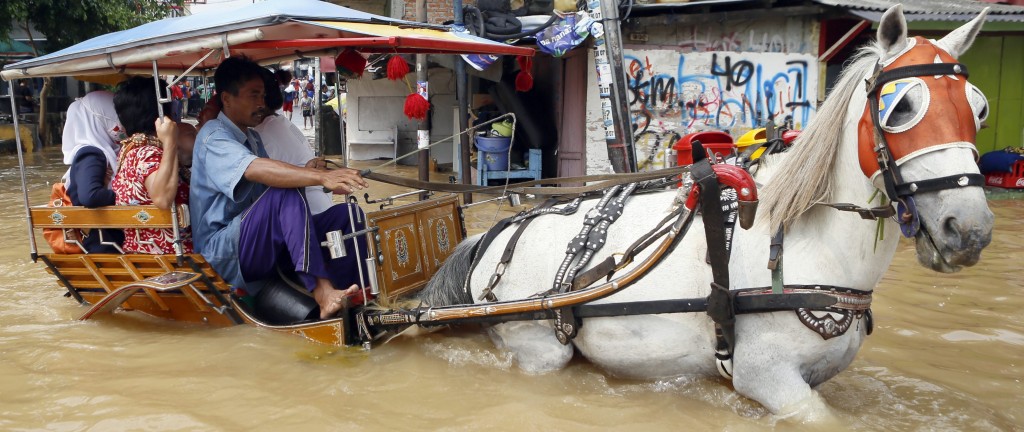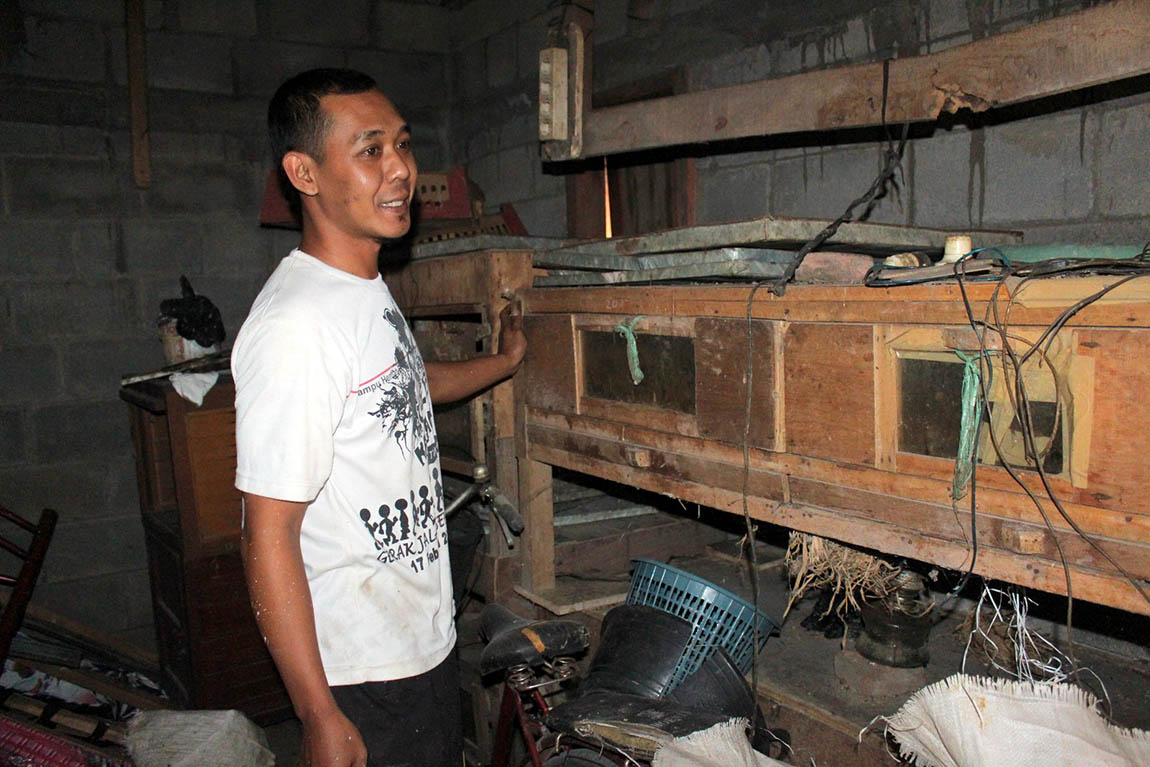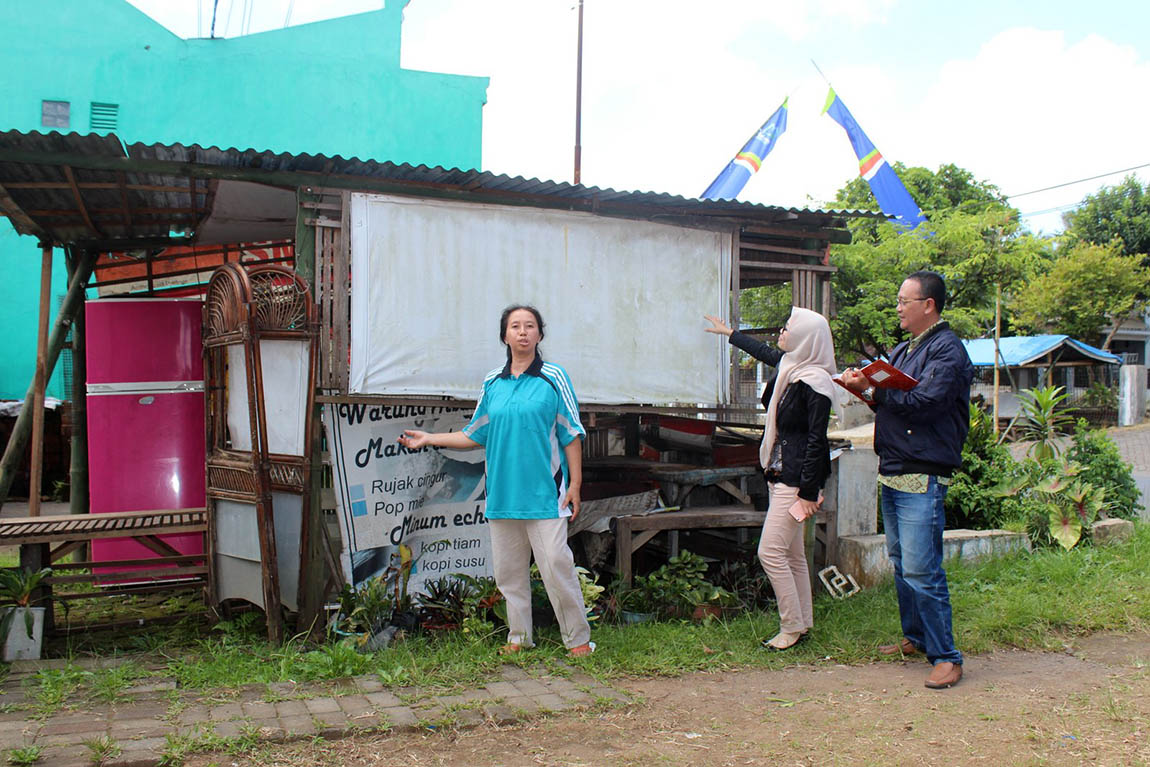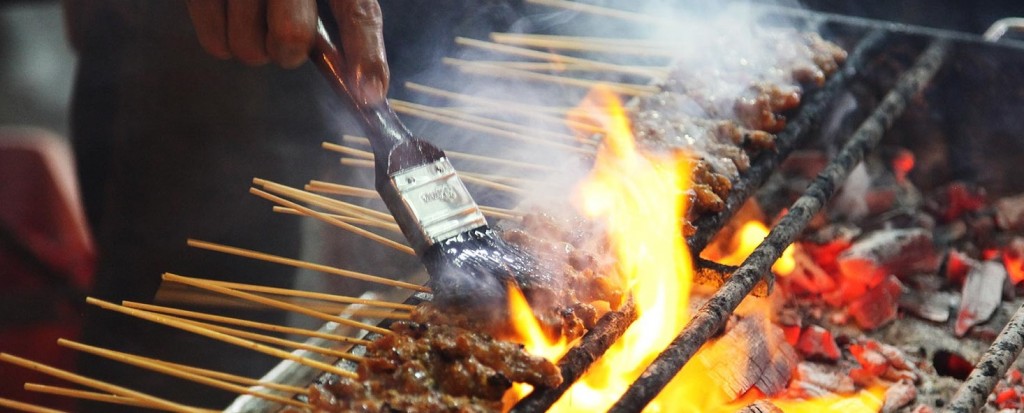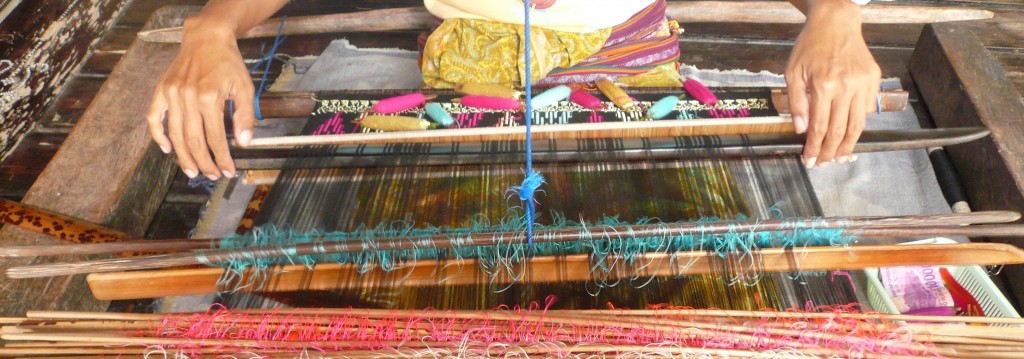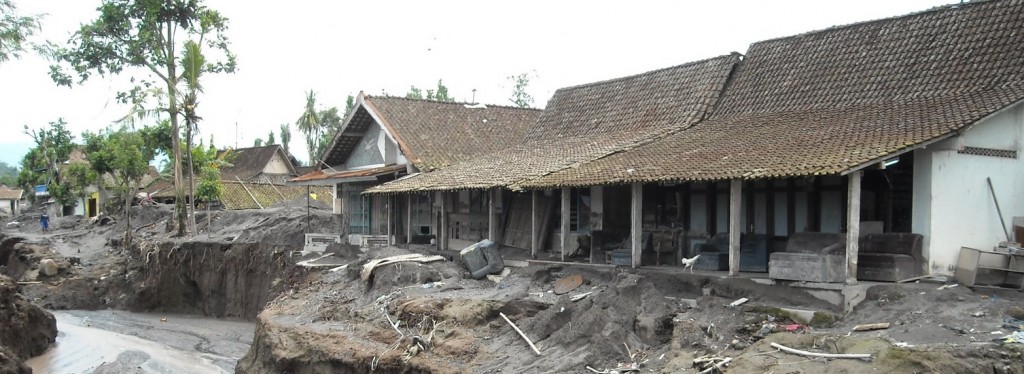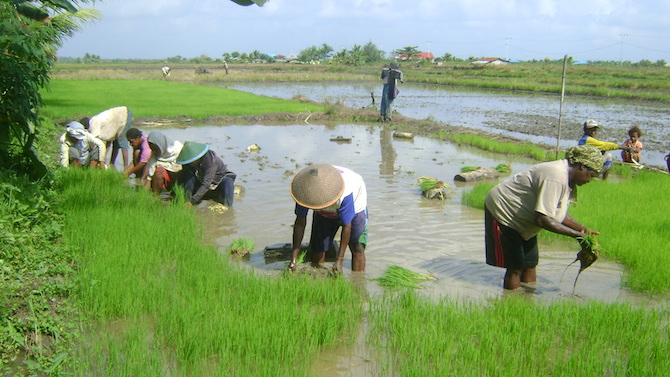Bamboo provides micro loans so that Indonesians can make small but important changes in their working lives. Bamboo Micro Credit does not judge its borrowers. Any lawful enterprise is considered as a suitable potential business. In Indonesia, the secret to success lies in finding a way to make ends meet, in such a way that it provides an income over as long a period of time as can be attained. In a country where there is no financial safety net, some businesses can be surrounded by uncertainty. Markets change, livestock die, and families grow. Through all these challenges, Bamboo organises interest-free micro loans to some of the most courageous men and women in the Archipelago. These are some of their stories.
Incubating an income
Poultry breeders who’ve tried to hatch chicks would know the task is best left to a broody hen. Though not if they want more than one clutch every few months.
To hatch hundreds incubators are needed. These smart machines keep eggs at the right temperature and humidity, turning them automatically every few hours. They are also costly; basic devices start in the hundreds with more sophisticated models selling above $1,000.
All beyond the reach of East Java duck farmer Heri Handoko, 30, who wanted to expand his breeding program when he lost his city job. So he turned to Bamboo Micro Credit for loans to build an incubator.
Clucky chooks know how to raise a family instinctively, but humans need a manual and much patience. In Heri’s case an extra was trial and error.
“My first attempt with the incubator was a failure,” said Heri. “So was the second – but I got the balance of heat, moisture and turning right the third time around. Now my success rate is 75 per cent.”
Australian breeders would wince at the sight of Heri’s backyard incubator in the village of Gambiran, about 12 km west of Malang. It’s been made of second hand timber and scrap metal and housed in a wooden shed. As the mains power is unreliable he keeps a kerosene lamp ready to maintain temperature.
Although he uses a thermometer much of the required skills are touchy-feely.
“I know when the electricity fails at night because, like most Indonesians, I sleep with the light on,” he said. “If it goes off I wake and dash out to the incubator.”
Three years ago Heri was working as a security guard in a cluster of shops when a major fire destroyed much of the building in central Malang. It also wiped out two small BMC customers.
Before the catastrophe he’d heard about BMC from shopkeepers; when made redundant he applied to grow the family business started by his grandfather.
His first loan was Rp 1.5 million ($150), the second and third each of Rp 2 million ($200). He’s now repaid all borrowings from increased sales.
Heri works out his own rice-husk and flour feed but doesn’t use hormones or additives for fear they’ll spoil the taste of the meat.
The birds are killed when they weigh 1.2 kilos, then plucked and gutted by his mother Ibu Anik. His father Pak Suwono delivers them to warung (roadside eateries) for Rp 65,000 ($6.50) each.
“I like duck meat,” said Heri. “But at the present price it’s too expensive.”
The entrails are also sold, but there’s no market for the feathers which are burned. If the birds have started laying before heavy enough to market, the eggs are boiled and salted for a delicacy known as telur asin bebek.
Heri has gone back to security work with a shopping mall and his mother keeps a small shop to supplement returns from the duck trade. He said he’d like to expand to 1,000 birds which would be enough to maintain the family.
However he’s run out of space and fertile eggs are getting difficult to source.
It’s an enterprise that wouldn’t be allowed in any built-up area in Australia, but Ibu Anik said there were no neighbour problems despite the smell and noise. “If I don’t hear the chorus I feel sad,” she said. “Quacking means money.”
Pictures by Erlinawati Graham
Heri Handoko with incubator and ducks.
Location ideal – ideas good – so what’s lacking?
There a blurred photo on the unplastered brick wall of Ibu Baitul Rohma’s East Java home. It shows an upright no-nonsense couple and their two young children during the Dutch colonial era.
One of the littlies was Ibu Baitul’s grandfather, but the family tree has roots which go deeper into the decades before Kodak.
“My ancestors came here seven generations ago, maybe more,” she said. “They cleared the jungle and grew rice and vegetables. They worked hard. They had a big farm.”
Their descendants do not. The fragmenting of rural properties through inheritance conflict is universal. As in WA’s wheatbelt the pioneers broke their backs for their offspring to enter the promised land.
Some sought their paradise elsewhere. When the oldies died the returning youngsters claimed their share; paddocks were sliced and sold, often destroying the original farm’s viability.
The rich soils behind Ibu Baitul’s home are now tilled by others; the extended family of 30 is left with a few houses fronting the 20-kilometre road between Malang and Tupang on the lower slopes of Mount Semeru.
This is Java’s highest peak (3,476 metres). It looms over the landscape, puffing like Billy, its fine ash keeping the fields fertile.
With a Bamboo Micro Credit loan of Rp 1 million ($100) Ibu Baitul opened a mobile food van which she parked outside schools. But education fees, doctor’s bills and other calls for cash made her sell the business.
She then set up a roadside stall catering for the peckish and parched heading to Semeru’s brother Bromo, a feature on many tourists’ must-climb list. The chef’s special was rujak cingur, (a broth of cow’s snout and chickpeas)..
“On a good day I could earn up to Rp 150,000 ($15), half that at other times,” she said. “Then a tree fell on the roof so I had to close.” She now sells bakso (meatball soup) to locals from her home.
She’s applied for a new loan of Rp 3 million ($300) to repair and refresh the eatery. But as she has yet to fully repay the original borrowing, BMC’s Malang agent Daya Pertiwi Foundation is hesitant about approval.
“I want the money for materials like timber to build new walls and cement for the floor,” she said. “My husband Pak Nanang Swandi will do the work.”
But to the casual observer it seems much could be achieved while waiting for the decision.
Although termites have gnawed into some of the basic furniture there’s been little attempt to clean up the mess. The essentials remain – two fridges, display cabinets, a table and benches so capital spending will be minimal. All that’s missing is the effort.
Ibu Baitul, 46, has a cheerful manner, ideal for customer service. There’s ample offroad space for the Bromo-bound to park their FJ Toyota ‘jeeps’ while passengers relax ahead of the bumpy ride. The surrounding paddy, 50 shades of green, is easy on the eyes. A mosque opposite is open for the devout.
The stall (warung) is named Ababil after a magic bird in Islamic mythology; flocks dropped stones to halt the Aksumite elephant army advancing on Mecca in 570 AD.
To stop passers-by heading to the mountains any new Ababil will first need the cultural insights and experience of Daya Pertiwi’s assessors to question further and work out the family dynamics. Is the proposal being solely powered by Ibu Baitul’s ideas and energy? Are others keen to assist and stay the distance?
Do they all understand that although BMC loans are interest free – a major factor for Ibu Baitul – they are not Australia government grants.
Serving sudden surges of customers with a smile will need more than one already busy mother behind the counter.
Pix by Erlinawati Graham
Ibu Baitul (left) explains her ideas to Anita and Irwan from Daya Pertiwi Foundation.
Ibu Baitul in her kitchen making bakso.
Seeing needs – supplying feeds
It’s 2.30 in the morning and Ibu Marsiti knows she has to get out of bed.
Not because she’ll miss a bus or get growled by a grumpy superior. Her life, seven days a week, is built around a simple premise: No rise, no dough.
“Occasionally I oversleep and that’s a problem,” she said. “Timing is critical. I have to catch my customers as they leave the mosque following fajar (morning prayers) around 5 am. If I’m late they’ve gone.”
Ibu Marsiti is a mlijo, a Javanese term meaning a woman who buys and sells simple meals and basic foods, like vegetables, chicken, fish and the staples – cooking oil, salt and sugar; because this is Indonesia the other essential is lombok (chili).
The 51-year old widow is her own boss, thanks to loans from Bamboo Micro Credit. The first of Rp 1.5 million ($150), which she has since repaid, helped her keep trading when her husband died recently.
The second of Rp 4 million ($400) has allowed her to expand her business from a narrow gang (lane) into a nearby housing estate where she saw unmet needs.
She lives in the suburb of Merjosari near the Gajayana Malang University, a campus surrounded by kos – boarding houses for students. Malang, 80 kilometres south of the East Java capital Surabaya, is an education city with 28 tertiary institutions.
These draw undergrads from across the archipelago. Few have friends or relatives in town so rent tiny rooms. They share communal toilets and have no cooking facilities so need to buy meals on the streets.
With limited budgets they usually try to spend less than Rp 15,000 ($1.50) on a breakfast of coffee, rice, a smattering of vegetables and a fried chicken leg or lele (catfish) for protein, all served on a bamboo leaf or waxed paper wrapper.
The homes on the housing estate have kitchens but preparing a breakfast when getting the kids ready for a 7 am school start can be one chore too many. So best buy from a mlijo, conveniently close.
Ibu Marsiti goes to the markets on the back of her son Dinas Romadhon’s motorbike before he starts work at a T-shirt printing workshop. Most mornings she spends about Rp 700,000 ($70) on essentials, then sells these at her stands.
Any perishable surplus is cooked and included in next day’s meals.
“I usually make a profit of around Rp 100,000 ($10) a day so I’m able to keep up with my loan repayments,” she said.
“I learned the skills of buying and selling from my mother and hope I can pass these down to my daughter Siti. Like my son, who studied Arabic literature. she’s also a university graduate and now works as an accountant in a hotel.
“I couldn’t borrow from a bank because they demand collateral and I have none. I read about micro credit in a newspaper. BMC has been good to me and I’d like to say thank you.”
Pix by Erlinawati Graham:
Ibu Marsiti
Ibu Marsiti (left) with customer Ibu Kasiatin
Sewing Machines
Undoubtedly one of the most successful loan purchases is a sewing machine. The purchase of a sewing machine can often make an enormous difference to a struggling family trying to climb out of poverty. In families, one of the greatest challenges is trying to find ways in which mothers can contribute additional income to the family whilst looking after children, or dealing with many other chores and responsibilities. The ability to sew garments in one’s own home gives families a chance to improve their circumstances. Clothes can be sold at markets, and the money can be directly applied to a business, with very little additional outlay beyond thread and cloth material. Of course Bamboo has men who use sewing machines too. The most important things is that a sewing machine can be used at any time of the day or night, by more than one family member, and with minimal maintenance. There are few barriers to entry for those getting started in the garment market, and although the sales are very small, they are relatively profitable as family members use their spare time to add to the enterprise
Mobile Food Carts in West Java
In Indonesia they are called “Kaki Lima”, a term which literally translates as five feet. Many Australian tourists see these mobile food stalls appear during the evening and stay open into the night. In most cases each stall does one style of dish. Some kaki lima sell fried rice. Usually one can hear the distinctive “tok, tok, tok” of a wooden stick striking a hollow piece of wood to announce the arrival of the nasi goreng Kaki Lima. For those hankering for a bowl of noodles there is the “tek, tek, tek” sound of a spoon against the side of a wok, whilst the ‘ting, ting, ting” tells everyone that bakso (meatballs) are ready and waiting. Even though Kaki Lima mobile carts represent the least expensive end of the food spectrum in Indonesia, good ones are highly sought after for their taste, reliability, and quality. One of our Bamboo borrowing families runs a successful food stall selling ayam goreng (spicy fried chicken). By using a small loan from Bamboo, they were able to buy the necessary equipment and supplies to make their business run successfully. With a loan of approximately AUD $150, this family has developed a small business into something that provides enough money to repay their loan, and to support the needs of a large extended family. There are long hours, and its hard work, but delicious snack food is always popular in Indonesia. Ayam Goreng is one of the specialities of Bandung.
Traditional and Ceremonial Cloths
Prosperous sales come in many shapes and sizes, but in Indonesia there are always unique opportunities to forge ahead. The challenge is often what we call “barriers to entry” such as when one of our borrowers, Erni, sought a Bamboo loan so that she could have more influence in the sale of Songket, a traditional ceremonial garment. The materials for making Songket can be expensive with items like gold thread, which can be difficult to acquire at a reasonable price, particularly when purchasing small amounts. Erni used the loan to purchase the materials so that she can now weave the cloth herself, and also contract out to other locals with her bulk supply of thread. The result is that she can present a range of goods at market, making her items more appealing, and the chance of sales more likely. For Erni, the market in Padang is over 100 kilometres from her home in the hills near Bukittinggi, so getting the mix right is an important component for her to succeed. As well as the entry barriers of costs and distance to market, Erni has suffered setbacks such as in November 2009, when a serious earthquake took its toll on her Padang market. Here the value of a Bamboo loan becomes apparent. Bamboo allowed Erni the flexibility to make repayments that suited her needs when her market to sell was reduced. Since Bamboo Micro Credit loans are free of interest, borrowers like Erni are far less likely to spiral into debt. The most important part is that she eventually repays the loan, so that the money can be reused for another borrower.
Many of the success stories are about people entering the “informal” economy. These are stories of courage and commitment in times of economic uncertainty and financial decline. They depict the resilience of people who, when given the opportunity, make the most of it.
Bamboo Micro Credit. Its not a handout … it’s a hand up.

